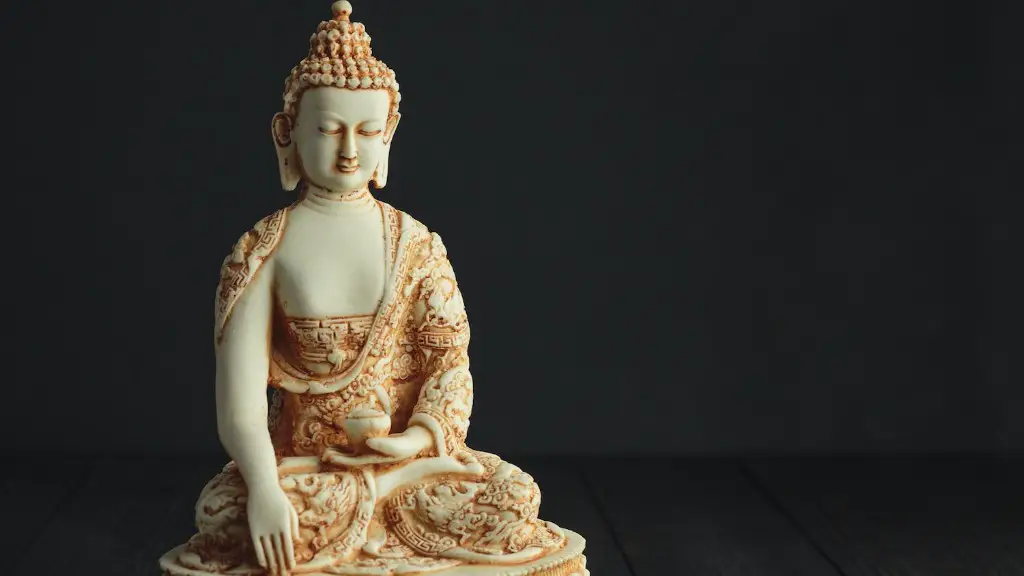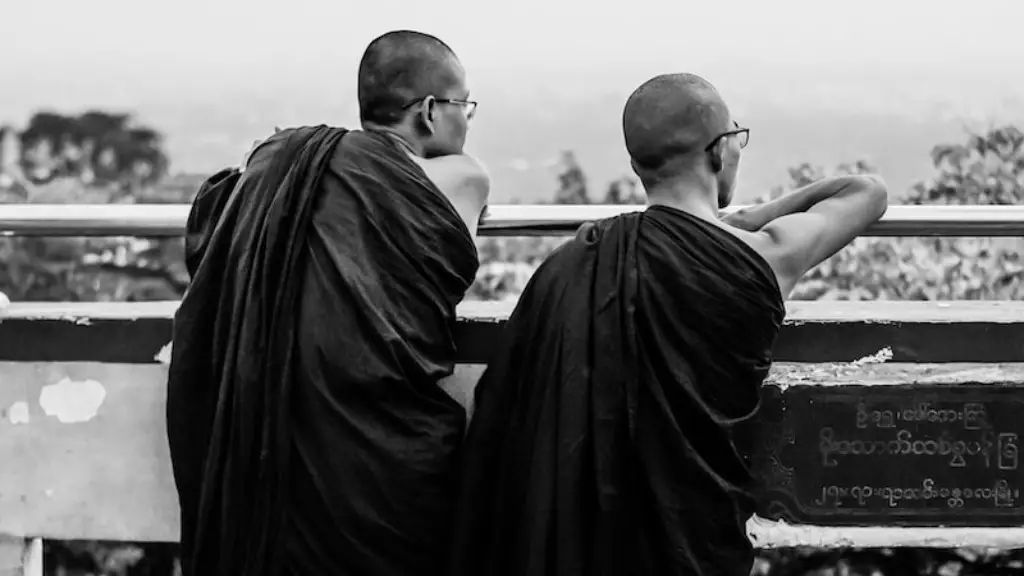Hinduism is one of the oldest living religious traditions in the world and is also one of the most diverse, in both its beliefs and practices. Hinduism is believed to have been around since at least 3000 BC, and while it has seen its metrics of popularity, acceptance and practice wax and wane over the centuries, it has persisted, both in India and throughout the world. But what exactly is Hinduism? Is it a religion, a philosophy or even a way of life? In this article, we examine the core beliefs of Hinduism, its various branches, its history and its place in the world today.
At its root, Hinduism is a polytheistic religion, believing in multiple gods and goddesses that represent specific aspects of nature and the universe. These gods and goddesses can also be represented in various forms. Hindus also believe in the concept of karma and reincarnation, meaning that one’s actions will determine the conditions of their rebirth. As such, Hindus recognise that their current lives are shaped by the way in which they lived in previous lives, and strive to purify and better themselves in order to attain enlightenment.
Hinduism is also the religion underlying the festivals of Holi and Diwali, celebrated widely around the world. Holi is a spring festival, celebrating the arrival of new beginnings, while Diwali marks the victory of good over evil as well as light over darkness. Together, these two festivals are seen as a celebration of both inner and outer life and transformation within and beyond the Hindu tradition.
The history of Hinduism is vast and complex, with different branches and interpretations that have developed through the years. For example, some branches of Hinduism follow the Vedas, ancient Hindu texts that serve as the primary source of spiritual knowledge and are widely seen as the most authoritative texts. Other branches, known as Smarta Hinduism, follow the works of great Hindu thinkers and philosophers, while another branch known as Vaishnavism follows the teachings of Lord Vishnu.
Today, Hinduism is primarily practised in India, Nepal and Sri Lanka, although there are millions of Hindu adherents scattered throughout the world. Hindus continue to struggle against discrimination, persecution and a lack of recognition of their beliefs and values both inside and outside of India. Despite this, Hindus are making an effort to reclaim their faith, organising protest-strikes, dialogue forums, and interfaith events such as Holi and Diwali.
In conclusion, Hinduism is one of the oldest and most diverse religious traditions in the world, with its many branches and interpretations existing alongside one another. It is a polytheistic religion, although it also shares some beliefs with monotheistic faiths such as Christianity, such as the concept of karma and reincarnation. Today, Hinduism is practised all around the world, with followers seeking recognition and acceptance, as well as challenges to overcome.
Culture
Hinduism is an ancient culture, with customs and beliefs deeply rooted in history. Hindu culture is seen in a variety of forms, such as art, music, dance, literature, language and architecture, amongst many other areas. Hindu art, for example, is particularly stunning and intricate, with drawings, sculptures and carvings featuring extensively in temples and religious sites. The Hindu epics, such as the Ramayana and Mahabharata, not only provide extensive formative evidence of Hinduism’s origins, but also great insight into the significance of various Hindu beliefs and practices.
Hinduism also has its own language – Sanskrit – which is particularly important for the practice of rituals and chanting of mantras. Moreover, Hinduism has its own unique set of books and scriptures, separate from other religious traditions. These include the Vedas, Bhagavad Gita, Upanishads and Puranas, amongst many others.
Traditional Hindu festivals such as Holi, Diwali and Navratri are steeped in Hindu culture, displaying the ancient beliefs and values of Hinduism, as well as its great tradition of storytelling. Something as simple as the bursting of firecrackers on Diwali carries considerable symbolic and spiritual value for Hindus, and their stories are filled with symbolism and rituals that help to keep Hinduism alive even to this day.
Philosophy
Hinduism has a large and complex philosophical tradition, populated by famous sages, scholars and reformers. This tradition has been shaped by different schools of thought and spiritual practice, introducing us to concepts such as ontology, psychology, cosmology, metaphysics and more. This includes the Upanishads, a collection of ancient Hindu philosophical texts, which still feature prominently in the writings of modern-day Hindu scholars.
Moreover, Hinduists use various philosophical principles in their everyday lives, such as the law of karma (action and reaction), the idea of reincarnation, and the concept of reaching the highest truth through contemplation. Moreover, there is a great emphasis placed on non-violence and respect for all life, a concept known as ahimsa. This philosophy is rooted in Hinduism’s most fundamental tenet: respect for all living things as one’s own self.
In short, Hinduism has an incredibly rich philosophical tradition, full of teachings and practices that have been preserved and expanded upon for thousands of years. This tradition serves as an important bridge between the ancient spiritual teachings and the modern world, providing guidance, inspiration and comfort to Hindus around the world.
Spirituality
Spirituality is a key part of Hinduism, with many Hindu practices aimed at deepening one’s connection to the divine. This includes meditation, yogic practices, chanting, worship and more. Hindus use these practices to focus their minds and hearts on the divine, overcome personal and spiritual difficulties, and find spiritual enlightenment.
Moreover, Hindu spirituality is often centred on a particular god or goddess, often referred to as the ‘Ishtadevata’ or ‘chosen deity’. Hindu believers use this deity as an anchor for their spiritual practice, turning to them for guidance and solace. This is usually done through various rituals and offerings, including prayer, meditation, chanting and more.
Apart from its various rituals, Hinduism also recognises the importance of the spiritual path, seen in concepts such as Jnana Yoga (the path of knowledge) and Bhakti Yoga (the path of devotion). These paths refer to the various methods that can be used to cultivate spiritual knowledge and devotion, and are a major part of Hinduism today.
Practices
Hinduism is a diverse tradition, with various practices and beliefs associated with it. Some of these include temple worship, pilgrimage, dietary restrictions, chanting, holy baths, marriage ceremonies and more. Hindus also spend time learning about their beliefs in the form of scripture study, discourses and more.
Perhaps the most important practice of Hinduism, however, is its devotion to one’s dharma, which is essentially a set of spiritual and moral duties pertaining to one’s station in life. Dharma is determined by one’s age, gender, caste, family, profession and so on. For example, a Hinduist might be expected to uphold certain values, perform a certain ritual or maintain certain relationships. By doing so, they will be cultivating their Dharma and spiritual development.
Ultimately, Hinduism is full of various practices, rituals and beliefs that many Hindus practice as a way to connect with the divine and lead a fulfilling, harmonious life. By adhering to their Dharma and spiritual practice, Hindus are able to manifest their potential, look after their families, and live in harmony with their environment.
Conclusion
In conclusion, Hinduism is one of the oldest and most diverse religious traditions in the world, with its many branches and interpretations existing alongside one another. From its gods and goddesses, to its spiritual and cultural practices, to its philosophical tradition, Hinduism is a vibrant and multifaceted tradition. Today, Hinduism is practised all around the world, with followers seeking recognition and acceptance, as well as challenges to overcome.


